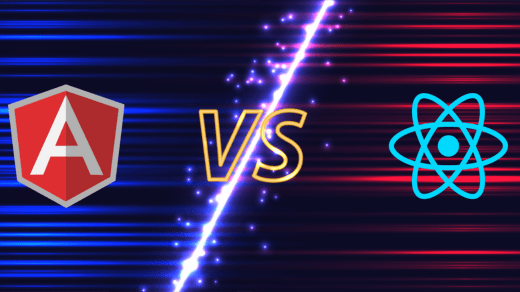
hire angularJS developers
The Angular vs React debate has been going on for a while now, and it doesn’t look like it’s going to end any time soon. And that’s because both frameworks have their pros and cons—they’re just different in many ways. In this article, I’ll explain some of the major differences between AngularJS and ReactJS so you can decide which is best for your project.
The Angular vs React debate has begun, and it doesn’t look like it’s going to end any time soon.
The Angular vs React debate has begun, and it doesn’t look like it’s going to end any time soon. The two frameworks are similar in many ways–they both help developers create web applications faster than ever before. But the way they go about this can be very different.
Angular focuses on keeping your code organized and readable while React focuses on making your application fast and efficient by only rendering what’s necessary in front of users at any given moment (called “virtual DOM”).
Which framework is right for you? That depends on how much time and effort you want to invest up front when building out your app, as well as how much flexibility you need down the road when scaling up or adding new features over time.
Depending on who you ask, both frameworks have their pros and cons.
How you choose to develop your next project will depend on a few factors:
- The skill set of your developers, and if they have any experience with either framework.
- Whether or not you’re working with an existing codebase that requires a rewrite (for example, if you have an Angular app but want to migrate it over to React). If this is the case, it may be easier for your team simply because they don’t need as much training time as someone who is new to both frameworks would need. However, if there aren’t any existing issues then migrating from one framework into another shouldn’t take long at all–the only difference being how much time comes into play when learning new syntaxes and concepts within each language itself!
- Budget constraints can also come into play here when deciding which route works best for your next project; while both frameworks offer free starter kits online through GitHub (Angular) or NPM (React), some companies prefer paying licensing fees upfront so that they don’t run into any unexpected costs down line during development cycles later down road after initial release date has passed them by already 🙂
What is AngularJS?
AngularJS is a JavaScript framework used for building single-page applications. It’s open source and free to use, although there are also paid versions available.
AngularJS was originally developed by Google in 2010 and has since gained popularity among developers for its ease of use and flexibility. Its popularity has led to many other frameworks being created that are similar to AngularJS but with some slight differences–such as React or VueJS–which we’ll discuss below!
What is ReactJS?
ReactJS is a JavaScript library for creating user interfaces. It has a component-based approach, uses a virtual DOM and one-way data flow. In short, ReactJS is developed by Facebook to address the challenges faced in developing large applications with multiple components.
It’s worth noting that ReactJS was inspired by Facebook’s internal tool known as Flux (which stands for “Facebook flux”). This tool was initially developed by Jordan Walke in 2011 but later open sourced by him along with other developers at Facebook after realizing its potential in developing web applications.
Why choose one of these over the other?
It’s important to consider what your project is going to be, who is working on it and how much time you have available. The framework you choose should help you achieve your goals while keeping the costs down.
For example, if you’re working with a large team of hire angularJS developers who are already familiar with JavaScript frameworks then React may be right for you because it allows each person to focus on their specialty (frontend or backend) without having to learn new tool sets or paradigms. On the other hand, if this isn’t true for your situation then Angular might be better suited for use since its architecture was designed from the ground up by Google specifically as a single-page web application framework – meaning there are fewer technical hurdles when learning how everything works together as one cohesive unit rather than two separate ones like React does (see “Why Is There So Much Confusion Around What Makes Up A Single Page Application”).
There are many factors that go into deciding which framework to use.
There are many factors that go into deciding which framework is best for your project. The two most important considerations are:
- Your project requirements
- Your team’s skill set and experience with a particular technology stack (e.g., React, Angular, Vue)
Conclusion
Ultimately, the choice of framework depends on your project and its needs. If you’re looking for something that offers more flexibility and control over every aspect of your application, then React may be better suited than AngularJS. However, if you’re just starting out with front-end development or want something simple to build websites quickly with minimal effort (i.e., little experience required), then Angular could be perfect!







